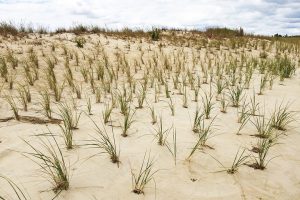2 March 2018: The UNFCCC Adaptation Committee (AC) has met to consider, among other issues, technical support and guidance to Parties on adaptation action, including through a technical paper on long-term adaptation planning. The Executive Committee (ExCom) of the Warsaw International Mechanism for Loss and Damage (WIM) has received submissions from Parties and stakeholders on the type and nature of actions to address loss and damage for which finance may be required.
The technical paper on long-term adaptation planning highlights, inter alia, relevant multilateral agreements, including the 2030 Agenda for Sustainable Development, the Sendai Framework for Disaster Risk Reduction (DRR) and Agenda 2063, linking them to long-term adaptation planning, for example through the NAP-SDG iFrame. Developed by the Least Developed Countries (LDC) Expert Group (LEG), the NAP-SDG iFrame is an approach that countries can use to manage the synergy between development and adaptation goals, including documenting outcomes to support the monitoring and evaluation of the SDGs and adaptation concurrently.
The NAP-SDG iFrame is an approach that countries can use to document outcomes to support the monitoring and evaluation of the SDGs and adaptation concurrently.
The Committee also agreed on the approach to the 2018 technical expert meetings (TEMs) under the Technical Examination Process on Adaptation (TEP-A) that are expected to address, inter alia, the linkages among climate change adaptation action (SDG 13) and SDGs 8 (decent work and economic growth), 9 (industry, innovation and infrastructure) and 12 responsible consumption and production).
AC members advanced preparations for a meeting to exchange views on national adaptation goals and the SDG indicators and how they relate to indicators and goals for DRR in the context of the Sendai Framework for DRR. They also provided guidance on the planning of workshops on advancing the understanding and overcoming challenges relating to the establishment of national entities for direct access and accessing the readiness programme for adaptation of the Green Climate Fund (GCF), and on advancing the engagement of the private sector in adaptation.
The 13th meeting of the AC (AC13) convened in Bonn, Germany, from 27 February to 2 March 2018. [AC13 Webpage] [Provisional Annotated Agenda] [Draft Technical Paper on Long-term Adaptation Planning] [Concept Note on TEP-A]
Parties and non-Party stakeholders who submitted their views to the ExCom, on the type and nature of actions to address loss and damage for which finance may be required include: the African Group, Alliance of Small Island States (AOSIS), the EU, Pakistan, the Philippines, Vanuatu, Palestine, Climate Action Network (CAN), Loss and Damage Network and the World Food Programme (WFP).
The ExCom had invited submissions on the issue in the context of enhanced cooperation and facilitation in relation to action and support, including finance, technology and capacity-building, to address loss and damage associated with the adverse effects of climate change. [Submissions on Type and Nature of Actions to Address Loss and Damage for which Finance may be Required] [Call for Submissions]
* * *
The SDG Knowledge Hub publishes regular adaptation, and capacity building and technology updates that can be found under the tags Adaptation and Loss and Damage Update, and Climate Change Capacity Building and Technology Update.

